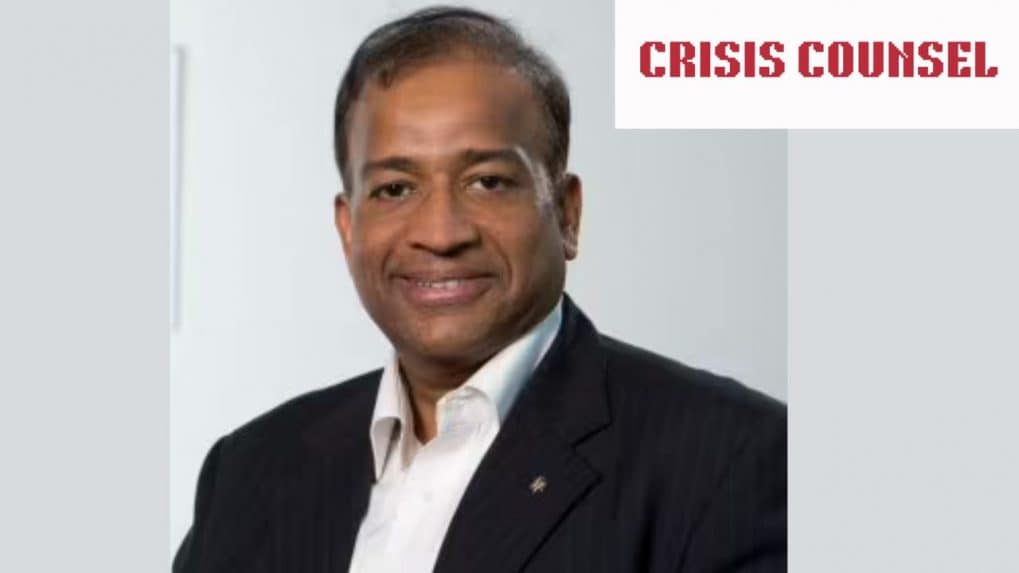Advertising
From Pink Slips to Silent Sidelining: Inside adland’s layoff and anxiety crisis

By Lloyd Mathias
The past fortnight has been troubled for Air India. The tragic crash of AI 171, at least two other aircrafts developing technical snags; subsequent rescheduling of flights and severe strictures from the Directorate General of Civil Aviation DGCA, ordering removal of key scheduling staff.
But Air-India’s problems have been simmering for a while. When the Tata’s took over the country’s flag carrier Air India from the Government of India, it rightfully raised traveler expectations. There were hopes of a more efficient, safe, and customer centric airline, devoid of government pressures and VIP whims. In a sense it was Air-India’ coming full circle form the time it was founded as Tata Airlines, by JRD Tata in the thirties and being nationalized in 1946.
After more than 70 years of government ownership, the task of turning Air India into a modern, competitive airline was never going to be easy. While early expectations of a quick turnaround were soon quashed, given that the Tata’s had not only inherited an airline with a long sarkari legacy but loads of entitled staff, an ageing fleet and the reality that many of the inefficiencies were systemic. The Tata’s also had to bite the bullet of merging their other airline Vistara into Air India to create consolidated entity.
However, the first phase was all about new livery, retrofitted interiors; deployment of new aircrafts and a record breaking order for new planes. While this did hold out hope, concerns about poor service standards, staff behavior and flight delays hadn’t entirely gone away.
The airline’s deficient in-flight service has drawn consistent passenger ire and passengers on long-haul flights continued to complain of broken in-flight entertainment. Many of these issues can’t be entirely attributed to the pains of an airline in transformation. The horrific crash of June 12 has now pushed things right back.
Civil Aviation is a capex-heavy; tech-dependent; people intensive; regulatory reliant; customer-facing business, where winning is near impossible. The list of airlines that have folded up in India - often taking the promoters down with them - is long: Damania Airways, East-West Airlines; Modiluft, Air Sahara; Skyline NEPC; Vayudoot, Air Deccan, Kingfisher Airlines, Jet Airways and Go-First.
Air-India will now need to re-work its’ revival plan. Understandably the shadow to the crash and the investigation will dominate the news for the next few months. Also social media tends to amplify issues - some genuine some doubtful – like the issue of the absence of the senior Tata/Air India personnel for the last rites of crew, or accusations that AI CEO’s Campbell Wilson’s post-accident note to staff was plagiarized.
The two issues that Air India now needs to address on priority are safety and trust. While safety is core to any airline, an airline that suffers from a crash, that tends to linger in public memory for long, has to work extra hard to emphasise safety. Naturally this has to be foundational and may necessitate radical reform – from aircraft selection, engineering, and maintenance, pre-flight checks, to heightened safety scrutiny certifying flying worthiness. The whole process has to be re-examined threadbare, which might - as is seeming apparent now - further disrupt schedules.
As Indian and global aviation safety authorities begin to oversee safety inspections and regulatory aspects, Air India will be under intense global scrutiny. Questions will be raised about safety aspects, crew quality, operational and aircraft maintenance issues – which need to be addressed to satisfaction.
Tata Group Chairman N Chandrasekaran, at a town hall addressing Air India staff said the airline should use this moment as a catalyst to build a safer airline. Air-India’s Tata sibling, Tata Motors is widely recognized for its commitment to vehicle safety emphasizing the strength and structural integrity of their vehicles. It has achieved significant milestones in safety ratings which have earned 5-star ratings from Global NCAP, making them among the safest cars.
The Tata’s also have Singapore Airlines – regarded among the world’s best airlines - as a shareholder and partner form whom they could draw help and support. Once the new safety protocol is put in place, a detailed well-articulated communications plan needs to be rolled out targeting flyers, regulators and the aviation community at large.
The second, is building trust in Air-India. The Tata parentage is a natural advantage, but transferring the trust earned over the years by the Tata’s to its newly acquired airline won’t be easy, and will be along arduous process. Air India will have to earn it, the hard way and learn from its new parent.
The Tata group, has a stellar track record, in how they handled the 26/11 Mumbai attacks on their iconic Taj Mahal hotel in Mumbai. They owned responsibility, addressed security issues in all their properties, stood by the families of the effected and the deceased and went beyond corporate SOP’s to show a genuine humane approach. For Air India’s sake, nay India’s sake, one hopes the Tata’s will do it again.
Lloyd Mathias is an angel investor and independent director.
From purpose-driven work and narrative-rich brand films to AI-enabled ideas and creator-led collaborations, the awards reflect the full spectrum of modern creativity.
Read MoreLooking ahead to the close of 2025 and into 2026, Sorrell sees technology platforms as the clear winners. He described them as “nation states in their own right”, with market capitalisations that exceed the GDPs of many countries.